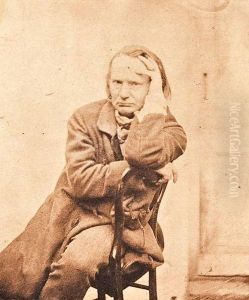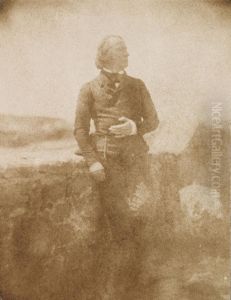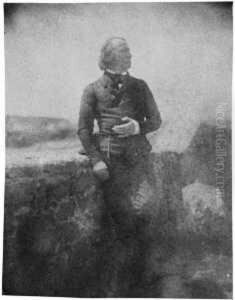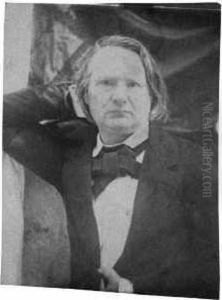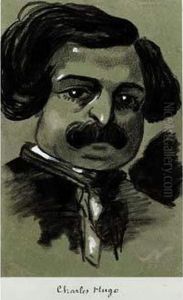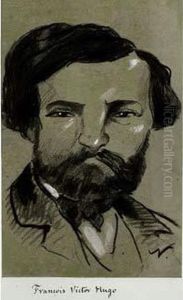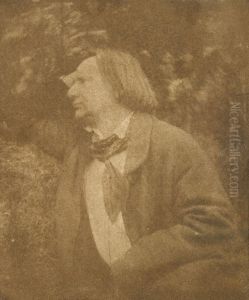Charles Victor Hugo Paintings
Charles Victor Hugo was the eldest son of the famed French writer and poet Victor Hugo and his wife Adèle Foucher. Born on November 4, 1826, in Paris, France, Charles was exposed to literature and the arts from a very young age, given his father's prominence in the French Romantic literary movement. However, Charles did not pursue a career in literature like his father. Instead, he found his calling in the visual arts, particularly in the realm of painting and engraving.
Charles Hugo's artistic career developed during a vibrant time in French art history. He was part of the Realist movement, which emerged in France in the 1840s. The Realists rejected the idealization of subjects depicted by the Romantics and instead focused on painting everyday scenes and people, often with a focus on the harsher aspects of life. Despite his father's towering literary reputation, Charles worked to establish his own name in the art world. His works were not as widely known or as celebrated as those of his father, but he still managed to leave his mark through his dedication to art.
Tragically, Charles Victor Hugo's life was marked by personal challenges and a relatively early death. He struggled with mental health issues throughout his life, which impacted his work and personal relationships. His father's fame cast a long shadow, and Charles's efforts to emerge from under it were not entirely successful. He passed away on March 13, 1871, at the age of 44. Though he did not achieve the same level of fame as his father, Charles Victor Hugo is still remembered for his contributions to the art world during a period of significant change and for his attempts to forge a distinct artistic path separate from his father's literary legacy.
